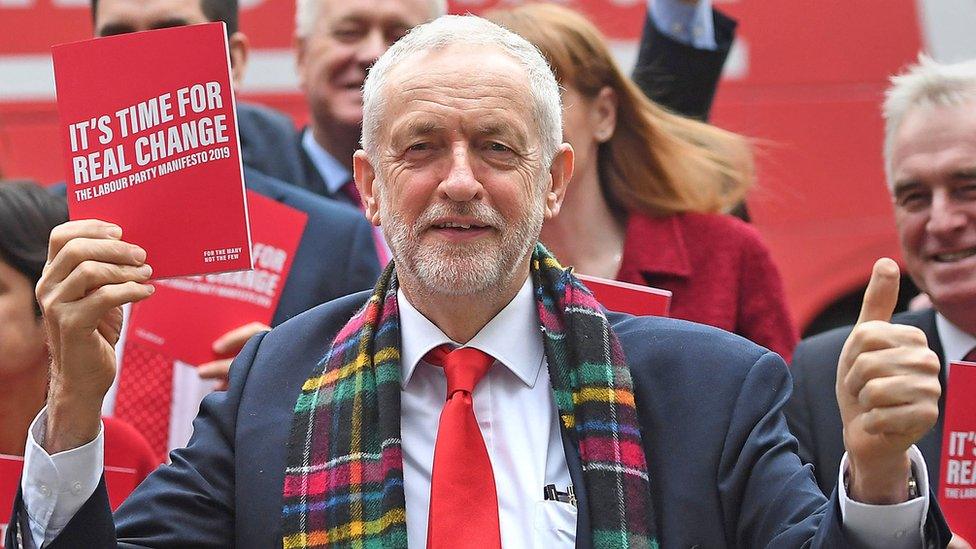A bourach over languages at FMQs
- Published
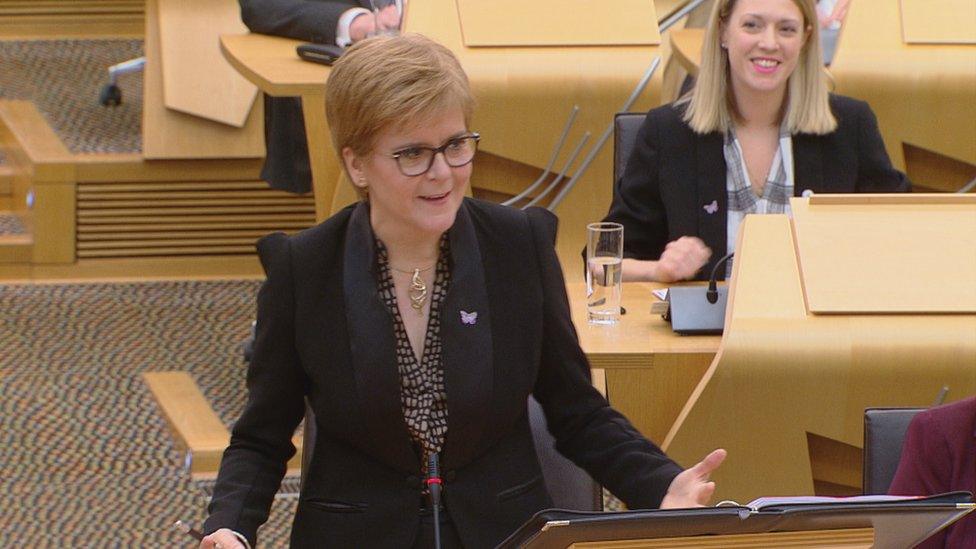
Nicola Sturgeon declined to choose a favourite Scots word
Tricky times, elections. Just one word out of place - and you're in trouble, not least with the wicked media. It's a phenomenon which gars oor elected tribunes tae ca' canny.
At Holyrood today, Nicola Sturgeon was even reluctant to express a preference for her favourite Scots word.
Why so? Apparently, she was concerned she might inadvertently deploy a rude expression or one that caused offence.
Ms Sturgeon had been invited to pronounce by the redoubtable Christine Grahame. Undeterred by any first ministerial sensitivity, Ms Grahame boldly opted for "bourach" as her chosen word in Scots.
It is a fine word. An excellent word. One now thoroughly assimilated into Scots, with variants such as "omni-bourach", describing a guddle of galactic dimensions.
Snag is - and one hates to be pedantic - it's actually Gaelic, not Scots. Fearing I was wrong - as I said, these are cautious times - I consulted a BBC chum who is a Gael.
I was told it is undoubtedly Gaelic. "That's definitely one of ours!", was the robust, even indignant response. I don't know, cultural appropriation, it's everywhere.
Ms Grahame, as is her wont, is unabashed. She told me: "Aye, I know it's Gaelic. But it alliterates with Brexit and that suits me fine." Or words to that effect.
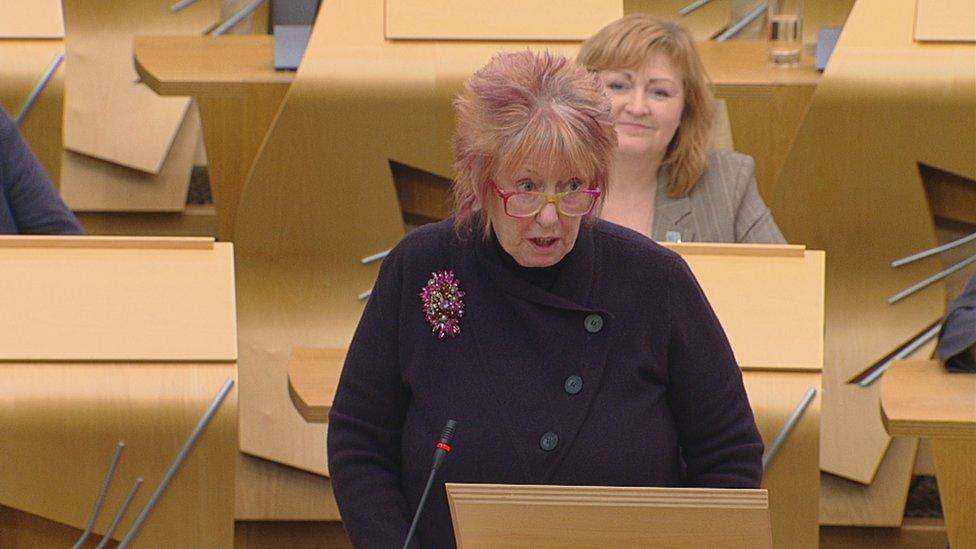
Christine Grahame raised the question of languages at FMQs
Me, I like words arising from Scotland's rural origins. I think of "the weary plyter o' life on the land", from Sunset Song (plyter = struggle).
Or two words my late father regularly used, despite having long shed his Angus bucolic background. On starting work, he would declare his determination to get "yokit tae the plew". To assume the harness of a shoulder-plough.
On resting, he would announce that he was "lowsed". Or loosed from toil.
Another Scots word I favour is "clanjamfrie". This I regard as eminently topical. It means confusion, a muddle, a melting pot of uncertainty.
McDiarmid uses it in a poem about the planet, in which he concludes "but greet and in yer tears ye'll droon the haill clanjamfrie".
Enough. When I worked as a journalist in the Commons, I was occasionally called upon by Hansard and PA to translate Scots words deployed by, among others, Donald Dewar. But that was back in the Middle Ages, when Jeremy Corbyn was a young back-bencher.
Now, we are told that Michael Gove baffled the current Cabinet by declaring that he was scunnered about something or other. You're not the only one, Michael.
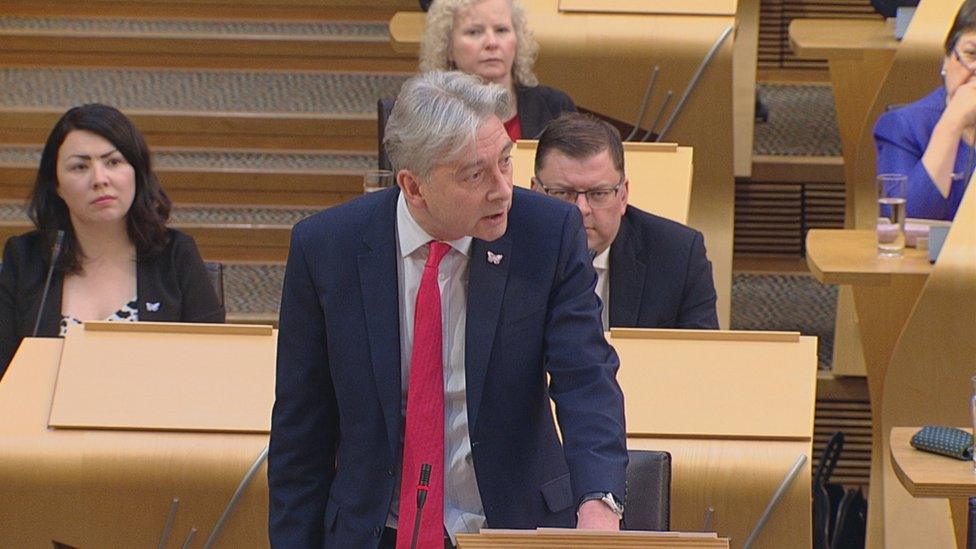
Richard Leonard will be launching the Scottish Labour manifesto on Friday
Linguistic checks may be required when the Scottish Labour manifesto is produced on Friday, after Thursday's UK party launch.
I believe that the two documents will both adhere to the formula that there would not be any support for indyref2 in the early years of a Labour government at Westminster.
Would Scottish leader Richard Leonard prefer to take a tougher line? Almost certainly yes. It would fit better with his combative approach to the SNP.
But he'll live with the manifesto wording, as long as everybody sticks to it and, in particular, that it takes the debate beyond the 2021 Holyrood election. Not least because Mr Leonard intends to posit himself as the next first minister in that contest.
How about Brexit? I expect the Scottish manifesto will commit the party in Scotland to campaign for Remain in any further Brexit referendum. This is in contradistinction to Jeremy Corbyn's position in that he argues for renegotiation of the Brexit deal, followed by a public vote - but won't commit to campaigning either way.
Labour strategists insist that isn't a problem. They say they understand Mr Corbyn's caution, given the preponderance of Labour seats in the north of England which voted Leave. They say folk on the doorsteps just want to know that they'll be given a choice.
And Trident? We'll watch out for the wording in the Scottish document - and for the position adopted at the launch - but I believe that, in practice, it is the UK position which will hold sway, given that defence is reserved. And the UK Labour position is to renew Trident.
Expect Scottish Labour to stress the wider context of a search for global disarmament and demilitarisation. Words matter. In any language.
- Published22 November 2019
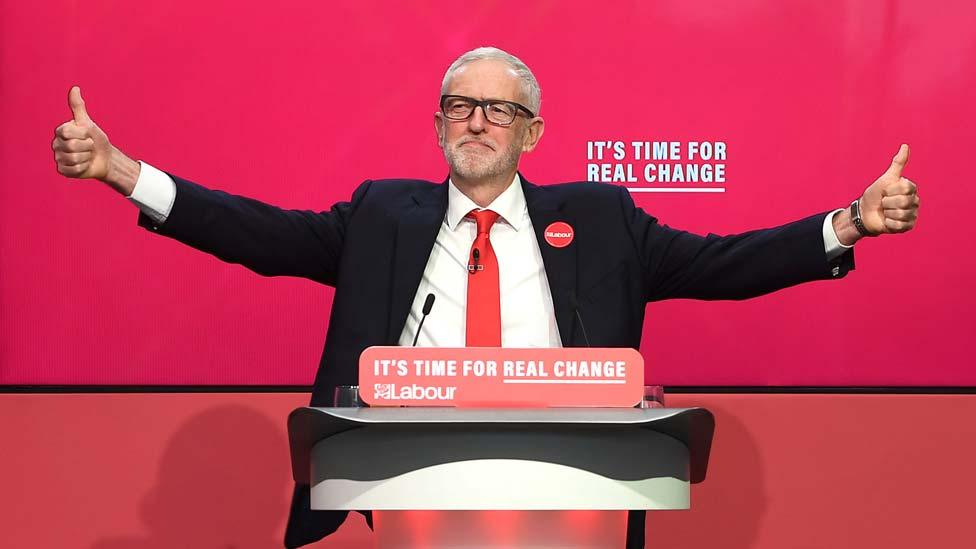
- Published21 November 2019
